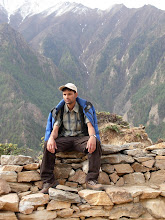A new book written by members of indigenous communities across Indonesia argues that traditional forest management practices can provide important lessons in the effort to slow climate change. The book, titled Forests for the Future, describes "the skills and knowledge used for generations to manage forest ecosystems without destroying them", according to a statement from Indonesia's Indigenous Peoples' Alliance (AMAN) and Down to Earth, the NGOs that published the work. "Forests for the Future, avoids romanticizing the indigenous way of life," the statement continued. "Instead it presents lessons learned from communities striving to meet today's economic and political challenges. It is a testament to the willingness of indigenous peoples to engage with an international audience so that their ways of forest management may be better known and get the recognition and respect they deserve."
Forests for the Future warns that carbon finance schemes that allow industrialized nations to offset emissions by paying for forest conservation in tropical countries present "huge risks" to indigenous communities, including loss of livelihoods and the denial of their right to manage their forests. The book argues that industrial forestry interests in Indonesia will use the mechanism to grab indigenous lands in order to profit from carbon trading. While such concerns are legitimate, there are indeed emerging safeguards for forest carbon projects — including the Voluntary Carbon Standard or the Climate, Community and Biodiversity Alliance — to protect against such injustices.
Forests for the Future warns that carbon finance schemes that allow industrialized nations to offset emissions by paying for forest conservation in tropical countries present "huge risks" to indigenous communities, including loss of livelihoods and the denial of their right to manage their forests. The book argues that industrial forestry interests in Indonesia will use the mechanism to grab indigenous lands in order to profit from carbon trading. While such concerns are legitimate, there are indeed emerging safeguards for forest carbon projects — including the Voluntary Carbon Standard or the Climate, Community and Biodiversity Alliance — to protect against such injustices.



No comments:
Post a Comment